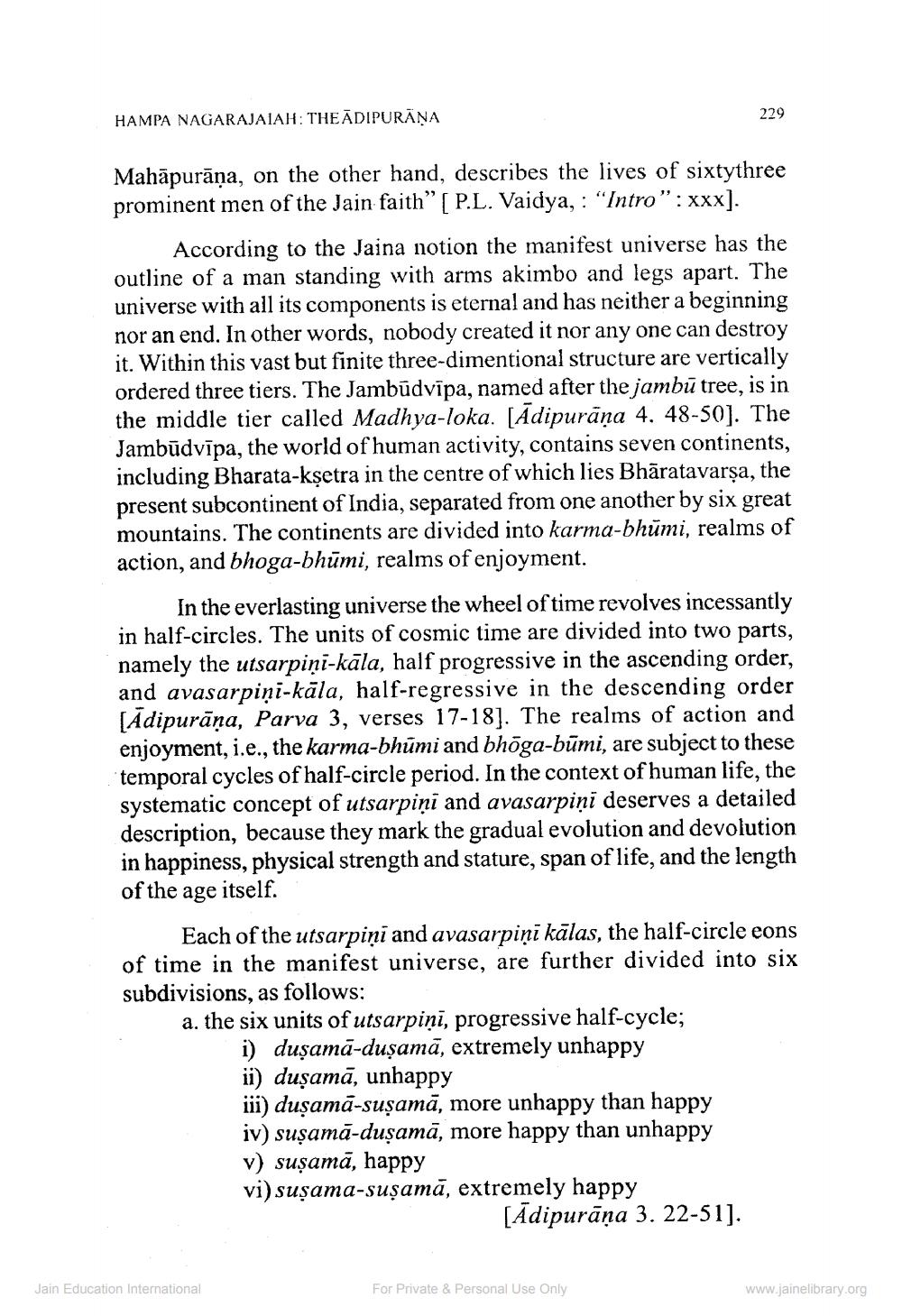________________
HAMPA NAGARAJAIAH: THE ADIPURANA
Mahāpurāṇa, on the other hand, describes the lives of sixtythree prominent men of the Jain faith" [ P.L. Vaidya,: "Intro": xxx].
According to the Jaina notion the manifest universe has the outline of a man standing with arms akimbo and legs apart. The universe with all its components is eternal and has neither a beginning nor an end. In other words, nobody created it nor any one can destroy it. Within this vast but finite three-dimentional structure are vertically ordered three tiers. The Jambudvipa, named after the jambu tree, is in the middle tier called Madhya-loka. [Ādipurāṇa 4. 48-50]. The Jambudvipa, the world of human activity, contains seven continents, including Bharata-kṣetra in the centre of which lies Bharatavarṣa, the present subcontinent of India, separated from one another by six great mountains. The continents are divided into karma-bhūmi, realms of action, and bhoga-bhūmi, realms of enjoyment.
In the everlasting universe the wheel of time revolves incessantly in half-circles. The units of cosmic time are divided into two parts, namely the utsarpini-kāla, half progressive in the ascending order, and avasarpini-kāla, half-regressive in the descending order [Adipurāṇa, Parva 3, verses 17-18]. The realms of action and enjoyment, i.e., the karma-bhūmi and bhōga-būmi, are subject to these temporal cycles of half-circle period. In the context of human life, the systematic concept of utsarpini and avasarpini deserves a detailed description, because they mark the gradual evolution and devolution in happiness, physical strength and stature, span of life, and the length of the age itself.
229
Each of the utsarpini and avasarpiņi kālas, the half-circle eons of time in the manifest universe, are further divided into six subdivisions, as follows:
a. the six units of utsarpini, progressive half-cycle;
Jain Education International
i) duşama-duṣama, extremely unhappy
ii) duṣamā, unhappy
iii) duṣama-suṣamă, more unhappy than happy iv) suṣama-duṣamā, more happy than unhappy v) suṣama, happy
vi) suşama-suşamă, extremely happy
[Adipurāna 3. 22-51].
For Private & Personal Use Only
www.jainelibrary.org




